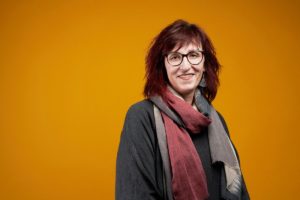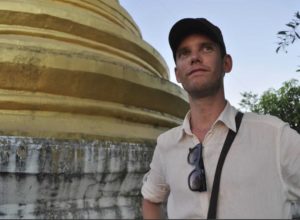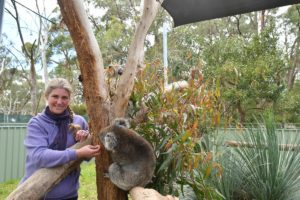
Flinders University research projects investigating cultural heritage, protecting people with disabilities from abuse, and monitoring species reintroduced into habitats will share more than $1.2 million of ARC Linkage funding.
Deputy Vice-Chancellor (Research) Professor Robert Saint says that 75% of ARC funding awarded to South Australia from this announcement is going to Flinders University researchers, reflecting the university’s growing focus on industry collaborations that strive to achieve real-world outcomes.
“With successful projects across three Colleges, Flinders has received the highest number of grants in the state for this round of funding. Our academics are collaborating with community groups, industry and government to tackle disability issues, better understand the cultural value of an extraordinary collection of artefacts and protect vulnerable species,” says Professor Saint. “This success is a reflection of the calibre of their research and we congratulate all three recipients.”
A ground-breaking national framework for protecting young people with disabilities from abuse is the aim of new research that has been awarded funding, led by disability researcher Professor Sally Robinson in the College of Nursing & Health Sciences.

The three-year grant ($466,852) brings together Flinders investigators with government, disability industry and community advocacy partners to develop a framework for preventing everyday harm and abuse while also promoting safety and wellbeing for young people with disability through using support services.
With its national scope, the project will support recommendations from the Disability Royal Commission and the incoming Australian Disability Strategy 2022-2032.
Professor Robinson says that the ARC Linkage project’s transformative approach aims to generate social, policy and economic benefits, and promote the involvement of young people with disability as co-researchers in addition to being project participants.
“The disability sector urgently requires restructuring to address the damning problems highlighted at the Disability Royal Commission and our research will address these through the development of new responses to be used by policy makers and practitioners,” says Professor Robinson.
“The research is fundamentally about focusing on those moments where poor practice occurs but typically goes unnoticed or unaddressed – to facilitate better outcomes for everyone involved in the management, delivery and receipt of disability support.”

Archaeologist Dr Martin Polkinghorne, from the College of Humanities, Arts & Social Sciences, will lead an international consortium to discover the origin of ancient ceramics found along the Maritime Silk Route.
Thanks to a four-year grant ($624,955) from the Australian Research Council, archaeologists and heritage specialists from Australia, Indonesia, and across Southeast Asia will reveal the stories behind the world’s largest known collections of trade ceramics.
The international research team will apply methods of archaeological science to vast collections held by the Republic of Indonesia’s Ministry of Marine Affairs and Fisheries, and another amassed by Adelaide barrister and collector Michael Abbott AO QC.

Dr Diane Colombelli-Négrel is leading a research team in the College of Science & Engineering to monitor the reintroduction of species as part of conservation efforts using novel and non-invasive facial recognition software that has been developed by the group.
The two-year grant ($145,132) aims to measure the recovery of a vulnerable and native bird species after they are introduced outside of their historic range.
The project will improve conservation planning as well as the outcomes of species reintroductions at other locations through tracking individual species.

